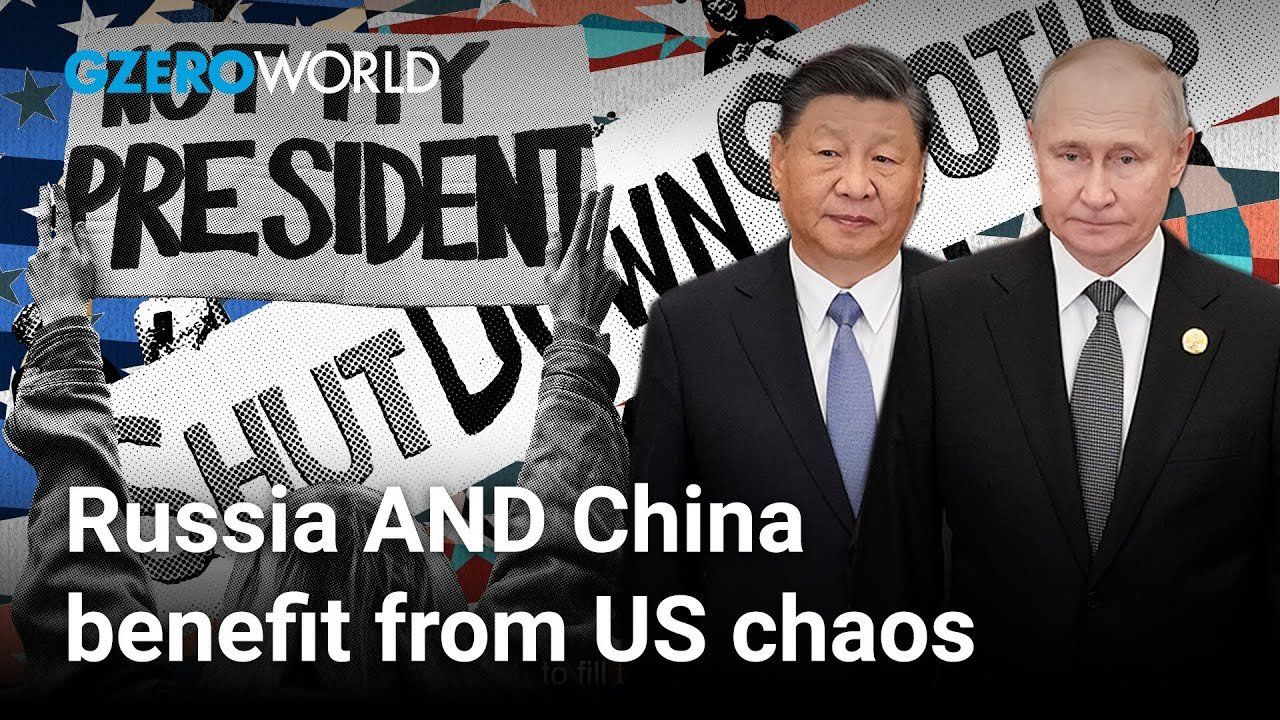GZERO World Clips
Russia and China benefit from US infighting, says David Sanger

Russia And China benefit from US infighting, says David Sanger | GZERO World with Ian Bremmer

On GZERO World, David Sanger, Pulitzer Prize-winning New York Times journalist and author of "New Cold Wars," argues that while China seeks to become the top global power by 2049, Russia, lacking such aspirations, acts as a disruptor on the international stage. Sanger also notes how both countries have an interest in fueling instability in the U.S., amplifying chaos to distract American focus from their strategic ambitions. He tells Ian Bremmer, "China wants to be the top dog by 2049, the 100th anniversary of the Chinese Revolution and of Mao declaring the state. And they want to be the top dog of something worth being the top dog of. The Russians have no hope for that. So their only source of power is as a disruptor, and that's the friction between these two that may come into play."
Sanger also argues that both Russia AND China have an interest in sowing internal discord in the United States. "They have every incentive, both of them, Russia and China, to be subtle actors in the background of this coming presidential election. And that's one area where if they are not cooperating, it would pay them off considerably to coordinate."
At the Munich Security Conference, a group of global technology providers, including Microsoft, announced the Trusted Tech Alliance — committed to shared, verifiable principles for trusted, transparent, and resilient technology across borders. At a moment of economic volatility and zero-sum technological competition, countries and customers are demanding greater accountability from technology providers. The Alliance addresses this by bringing together companies from across Africa, Asia, Europe, and North America around shared commitments: transparent governance, secure development practices, supply chain oversight, open digital ecosystem, and respect for the rule of law—ensuring the benefits of emerging technologies strengthen public trust while driving job creation and economic growth. Learn about the Trusted Tech Alliance here.
A ceasefire in Ukraine could be a strategic trap, leaving Kyiv vulnerable, former NATO ambassador Ivo Daalder warns on GZERO World.